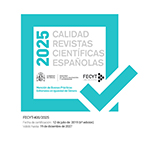Controversias entre la teoría curricular y la práctica educativa en la educación musical
Resumen
La calidad de un sistema educativo se puede observar mediante la consistencia entre la teoría curricular y la práctica educativa. Particularmente, el currículo chileno expresa que la creatividad asume un rol esencial en la educación musical, tanto en los niveles de educación primaria como de secundaria. En este estudio, la creatividad se posiciona como la variable predictora del modelo, confirmándose estadísticamente la teoría curricular. Sin embargo, los hallazgos demuestran que las actividades creativas son escasamente potenciadas en las prácticas educativas, al punto que, a mayor nivel educativo, menor actividad creativa. En conclusión, no existe consistencia entre la teoría curricular y la práctica educativa. Por lo tanto, futuros estudios no deben centrarse en la confrontación entre docentes generalistas y especialistas porque tal enfoque solo minimiza el debate sobre las competencias pedagógicas.Descargas
Descarga artículo
Licencia
La Revista Electrónica Complutense de Investigación en Educación Musical, para fomentar el intercambio global del conocimiento, facilita el acceso sin restricciones a sus contenidos desde el momento de su publicación en la presente edición electrónica, y por eso es una revista de acceso abierto. Los originales publicados en esta revista son propiedad de la Universidad Complutense de Madrid y es obligatorio citar su procedencia en cualquier reproducción total o parcial. Todos los contenidos se distribuyen bajo una licencia de uso y distribución Creative Commons Reconocimiento 4.0 (CC BY 4.0). Esta circunstancia ha de hacerse constar expresamente de esta forma cuando sea necesario. Puede consultar la versión informativa y el texto legal de la licencia.













